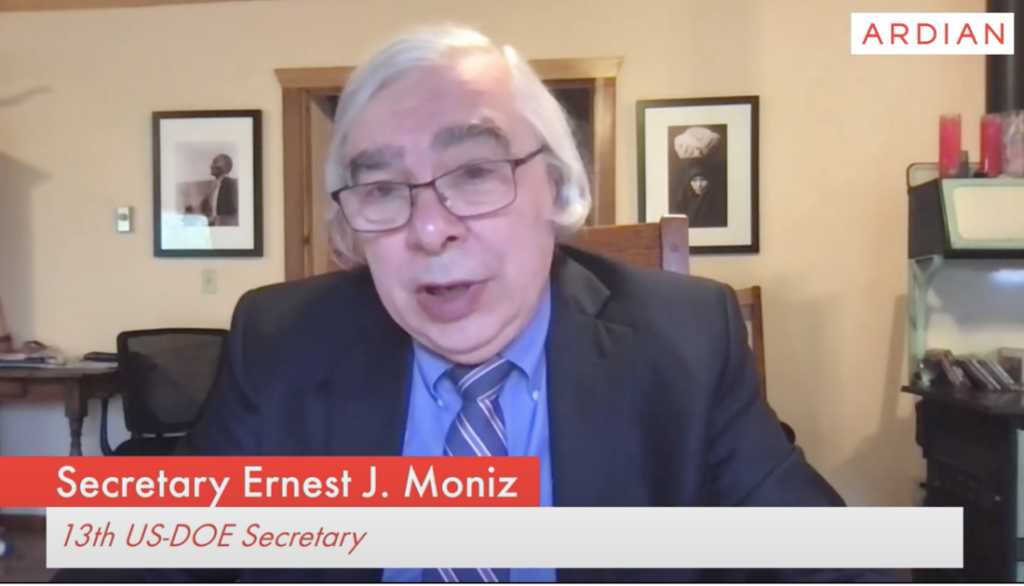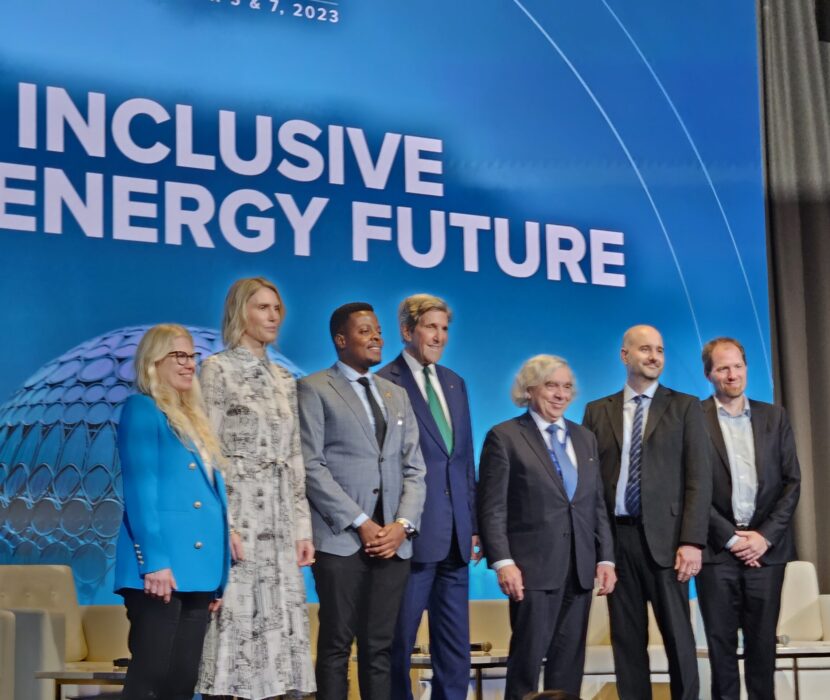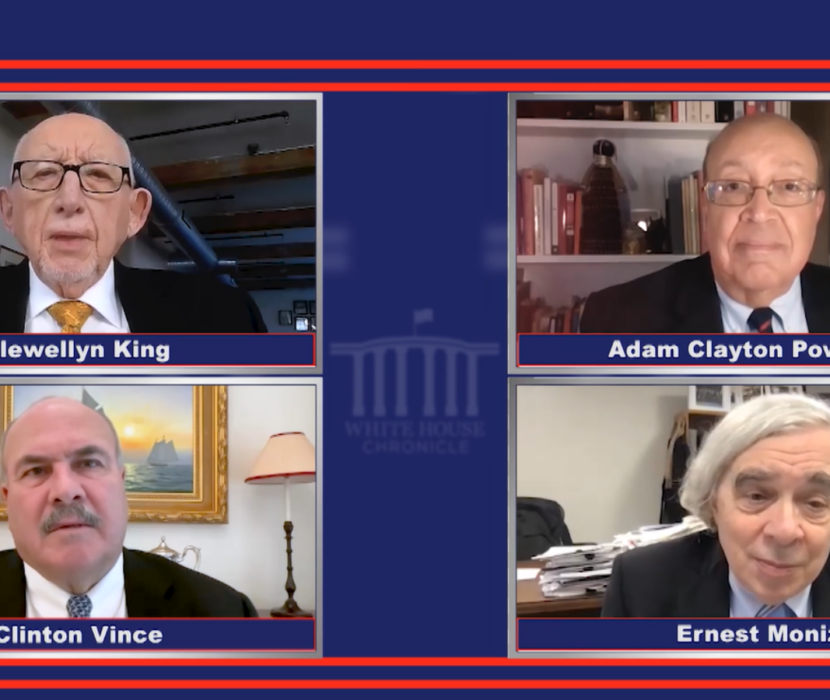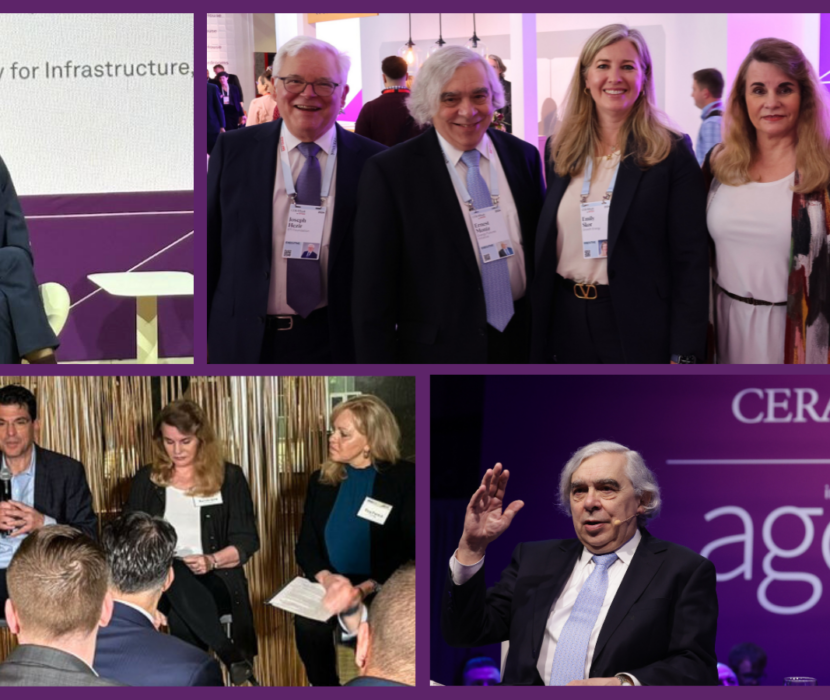
Zero-carbon electricity alone is not enough to reach economy-wide, net-zero emissions. This means that low-carbon electricity will need to be complemented by clean fuel. “Hydrogen is the most likely candidate for this fuel,” said Ernest Moniz at private investment house Ardian’s virtual summit on the role of governments and investors in advancing hydrogen.
“[Hydrogen] can be positioned as the ‘new natural gas,’ serving multiple sectors flexibly, while eliminating major greenhouse gas emissions,” he said. “It can be combusted cleanly and replace carbon-emitting industrial processes such as in steelmaking.”
Moniz stressed that hydrogen could be a ‘’critical enabler” of the low-carbon energy transition, but to make this possible, its development would need to be catalyzed by government policy, incentives, and private sector capital.
EFI is actively engaged in analytical work and stakeholder engagement on the potential of hydrogen. Last fall (September 2021), EFI published a report on the current state of the hydrogen market in the United States. And in 2021 and 2022, EFI held three regional workshops on building the hydrogen industry in the Ohio River Valley, Carolinas, and Gulf Coast.
EFI focuses on policy and industry actions that can build an economic industry for hydrogen made from natural gas (“blue hydrogen”)—eventually paving the way for an economic “green hydrogen” industry (in which hydrogen is made from electrolysis of water and no carbon is involved).
The EFI team is finishing up a report on our latest Gulf Coast regional workshop, as well as a hydrogen policy roadmap—both planned for release this fall (2022).
Although Ardian’s summit was in 2021, Moniz’s remarks on hydrogen are still relevant.
At the summit, Moniz noted that the majority of our energy needs are met by oil and natural gas. However, climate change and other environmental concerns compel us to seek alternatives.
He said the falling costs of lithium batteries, along with government financial incentives, have helped make light-duty electric vehicles more affordable, but there are some energy uses that are not as economically electrified or decarbonized. He named transportation, industry, buildings, agriculture, and waste management. These difficult-to-decarbonize sectors show a need for a clean fuel, and Moniz is optimistic.
“I am encouraged by what I see, and hopeful that the next 29 years will see hydrogen adopted world-wide as the ‘fuel’ we need to avert climate catastrophe,” he said.
– Karla Salazar
(Share this post with others.)




